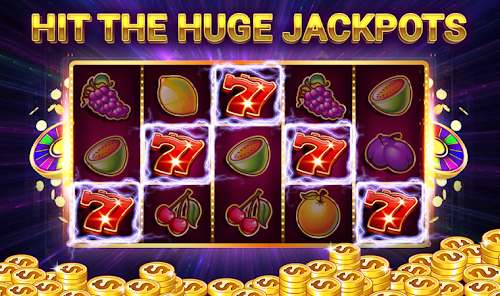Online gaming has evolved from a niche hobby to a massive global industry, revolutionizing the way we engage with games and entertainment. Today, online gaming platforms serve as the cornerstone for this virtual realm, offering a variety of experiences that cater to millions of players worldwide https://www.comunidadesplus.com. These platforms have not only changed how games are played but also how they are developed, shared, and enjoyed. This article delves into the significance of online gaming platforms, highlighting their growth, key players, and the influence they’ve had on modern culture.
The Rise of Online Gaming Platforms
The origins of online gaming can be traced back to the 1980s and 1990s, when early computer networks allowed players to connect and play simple games against each other. As technology advanced, so did the scale and complexity of online games. With the advent of broadband internet and high-speed connections in the early 2000s, gaming became more accessible and immersive, allowing gamers to play with people around the world.
The growth of online gaming platforms like Steam, PlayStation Network, Xbox Live, and newer platforms such as Epic Games Store, GOG, and even mobile app stores has made it easier than ever for players to access and enjoy games. These platforms have fundamentally shifted the dynamics of gaming, allowing players to not only compete against each other in real-time but also share their gaming experiences, stream their gameplay, and even participate in online communities.
Key Features of Online Gaming Platforms
- Multiplayer Functionality: One of the most significant features of online gaming platforms is their ability to connect players from all over the world. Multiplayer functionality allows users to compete, collaborate, or simply socialize in virtual environments, making gaming a social activity that transcends geographical boundaries.
- Digital Game Libraries: Platforms like Steam, PlayStation Store, and Xbox Marketplace offer a wide range of digital games for purchase, eliminating the need for physical discs. This has enabled quick access to both indie games and AAA titles, with frequent sales and promotions offering players discounts.
- Game Streaming and Content Creation: Platforms such as Twitch, YouTube Gaming, and Facebook Gaming have turned game streaming into a cultural phenomenon. Gamers can now share their gameplay, build communities, and even earn income through advertisements, subscriptions, and donations. Streaming has opened new doors for professional gamers and influencers alike.
- Cloud Gaming: Services like Google Stadia, NVIDIA GeForce Now, and Xbox Cloud Gaming have introduced cloud gaming, allowing players to play high-quality games without the need for powerful hardware. This has made gaming more accessible to a broader audience, as players can stream games on lower-end devices such as smartphones, tablets, or budget laptops.
- Community and Social Integration: Online gaming platforms often feature integrated social tools, allowing players to connect, chat, and form gaming groups or clans. Features like friend lists, voice chat, and group matchmaking further enhance the social aspects of gaming.
- Esports and Competitive Gaming: The rise of online gaming platforms has also fueled the growth of competitive gaming or esports. Platforms like Twitch, YouTube, and Steam have become hubs for live esports tournaments, with major events attracting millions of viewers. Professional players, teams, and sponsors have helped elevate esports to a level comparable to traditional sports in terms of viewership, sponsorship, and media attention.
Major Online Gaming Platforms
- Steam: Developed by Valve, Steam is the undisputed leader in the digital distribution of PC games. Offering a massive catalog of games across all genres, Steam provides features such as community hubs, mod support, game reviews, and social integration. Its regular sales, including the famous Steam Summer Sale, have cemented its place as a go-to platform for PC gamers.
- PlayStation Network (PSN): Sony’s PlayStation Network offers a comprehensive suite of services, including online multiplayer, digital game stores, and streaming options. With exclusive titles like “The Last of Us” and “God of War,” PSN has built a dedicated user base, providing immersive single-player and multiplayer experiences on the PlayStation consoles.
- Xbox Live: Microsoft’s Xbox Live is another major online gaming platform, offering a similar suite of services as PSN. Xbox Live features cross-platform multiplayer with PC players, an extensive game library, and a subscription service, Xbox Game Pass, which provides access to hundreds of games for a monthly fee. Xbox Live also supports backward compatibility, enabling players to enjoy older titles on newer consoles.
- Epic Games Store: Epic Games Store has emerged as a strong competitor to Steam, offering free games regularly and a growing library of titles. Epic’s exclusive games, like “Fortnite” and “Unreal Tournament,” have helped the platform carve a niche in the online gaming ecosystem.
- Mobile Platforms: App stores such as Google Play and Apple’s App Store have become significant hubs for mobile gaming. Games like “Clash of Clans,” “PUBG Mobile,” and “Candy Crush Saga” are some of the most popular on these platforms, attracting millions of players. Mobile gaming platforms offer free-to-play models, in-app purchases, and social integration.
- Twitch: As the leading live streaming platform for gamers, Twitch allows users to stream their gameplay and interact with viewers. Esports tournaments, casual streams, and gaming tutorials have made Twitch a central hub for gaming content.
Impact of Online Gaming Platforms on Modern Culture
Online gaming platforms have not only transformed how games are consumed but have also influenced broader cultural trends. Gaming is no longer seen as a solitary activity; it has become a form of social interaction and entertainment. Here are some of the key cultural impacts:
- Global Communities: Online platforms have allowed players to form connections across the globe. Whether it’s through multiplayer matches or social gaming communities, players can engage in meaningful interactions that transcend borders.
- Cultural Events: Major gaming events like E3, BlizzCon, and The Game Awards are live-streamed to millions of viewers. These events generate excitement, discussion, and anticipation for upcoming games, further cementing gaming’s place in popular culture.
- Virtual Economies: Games like “Fortnite” and “Minecraft” have developed in-game economies where players can buy, sell, or trade virtual goods. These virtual items, skins, and currencies have led to the rise of the “microtransaction” model, where players can spend real money to enhance their gaming experience.
- Increased Socialization: Gaming platforms like Discord and social integration tools on consoles encourage more social interaction. Gamers can voice chat, share tips, and coordinate strategies, making gaming more collaborative than ever before.





